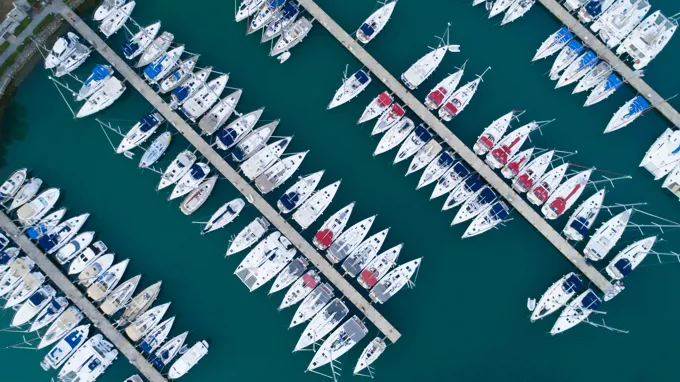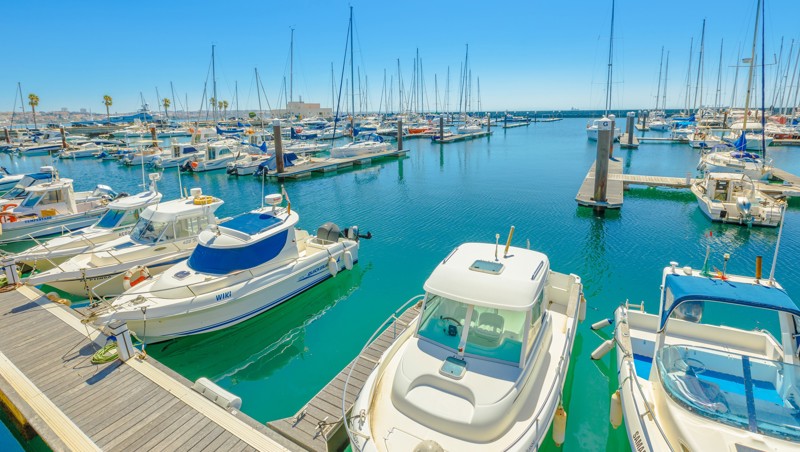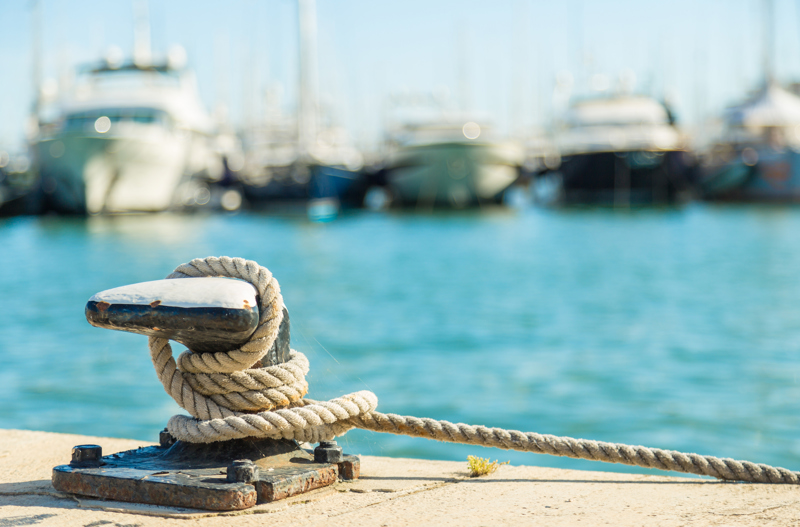
Boat Marinas - Buying, Selling, or Operating
Introduction
Whether you are buying, selling or operating a boat marina in Virginia, it is important to understand the legal issues related to waterfront property rights. Legally, a marina differs from a port. For one, a marina offers moorings and supplies for pleasure craft whereas a port handles large passenger ships or cargo from freighters.
When it comes to Virginia water laws, the four attorneys on the Pender & Coward Waterfront Property Law Team have the expertise you need for all of the legal questions that come up in connection with a commercial marina.
A Working Knowledge of Virginia Law on Riparian Property Rights is Essential
A person who owns or operates a marina in Virginia should be familiar with riparian property rights. Our Waterfront Property Law team handles riparian property rights matters all day every day; our attorneys are routinely asked to teach other attorneys on the topic.

Shutterstock: Benny Marty
The Due Diligence or Study Period When Buying or Selling a Marina
Our clients who are purchasing or selling a boat marina benefit from our expertise in the negotiation and in the drafting and interpretation of contracts. Buyer and seller both need clear identification of the real estate and improvements that convey purchase price and payment terms, and a fixed date for the transaction to close.
The clause providing the “due diligence” or “study” period is typically an important feature in the sales contract. It gives the buyer a specific period of time during which it can cancel the contract, typically with full return of the earnest money deposit, in the event that any of the buyer’s inspections reveal that the property does not suit the buyer’s needs. Thirty days is a short amount of time for the study period, 120 days is a generous amount of time. Most study periods fall somewhere in the range of 45-90 days.
The buyers that we represent typically want to know whether there is environmental contamination at the marina, and whether the marina is the subject of current or past enforcement actions brought by regulatory authorities. We are experienced with environmental due diligence, whether it be a Phase I Environmental Site Assessment (see our blog and our webinar) or a Phase II Environmental Site Assessment.
The buyers we represent also want to know whether the facilities at the marina are in good condition. We are familiar with and can provide referrals to consultants with expertise in performing surveys that assess the material condition of the docks, buildings, utilities and other marina infrastructure.
Legal Issues Confronting the Boat Marina Owner and Operator
The marina owner/operator in Virginia needs to understand the regulatory process for installing or modifying bulkheads, piers, and jetties. Our team also specializes in helping clients to obtain permits for encroachment on submerged lands owned by the Commonwealth of Virginia. We are intimately familiar with Virginia water laws governing submerged lands and have deep relationships with the regulatory agencies, including the Virginia Marine Resources Commission and the U.S. Army Corps of Engineers.
The marina owner/operator must also contend with the problem posed by shoreline erosion. It is a perennial concern for all waterfront property owners in Virginia. Our team is familiar with the Virginia Living Shoreline Law, Chesapeake Bay Preservation Act, Wetlands Law and Regulation in Virginia, and the Virginia Coastal Primary Sand Dunes & Beaches Act.
Siltation reduces water depth and interferes with navigation by hindering vessel movement into and out of the marina. The attorneys practicing in our Waterfront Property Law team are familiar with the laws and regulations in Virginia for dredging operations that restore water depth (see our blog and our webinar).
Our experience includes dealing with derelict vessels (we prosecuted a Clean Water Act citizen suit that forced the removal of 45 derelict vessels from waters adjacent to our client’s property) and abandoned vessels (see our blog).
Pollution issues at marinas typically involve discharge of pollutants into the water, whether from marine sanitation devices or the discharge of oil and hazardous substances when, for example, pumping contaminated bilge water over the side (see our article on oil spills and our second article on oil spills).
Our team also possesses expertise in collecting past due slip fees, including the skills needed to carry out an arrest of the offending vessel.

Shutterstock: Cleat hitch
Looking to Buy, Sell, or Operate a Boat Marina? Contact Jim Lang Waterfront Law.
The attorneys on our Waterfront Law Team have strong connections in the maritime community and in the environmental community. The practice group leader has an LLM in Environmental Law. As you can tell from the time a few years ago when one of our attorneys stripped off his shoes and got in the water to fend off a criminal enforcement action being filed against our client, we go the extra mile for our clients, if that is what is needed to get the job done.
Contact Jim Lang if you would like to see him publish more information on buying, selling or operating a marina in the state of Virginia. Of course, you can always contact Jim for his advice and assistance in connection with needs specific to your particular situation.
